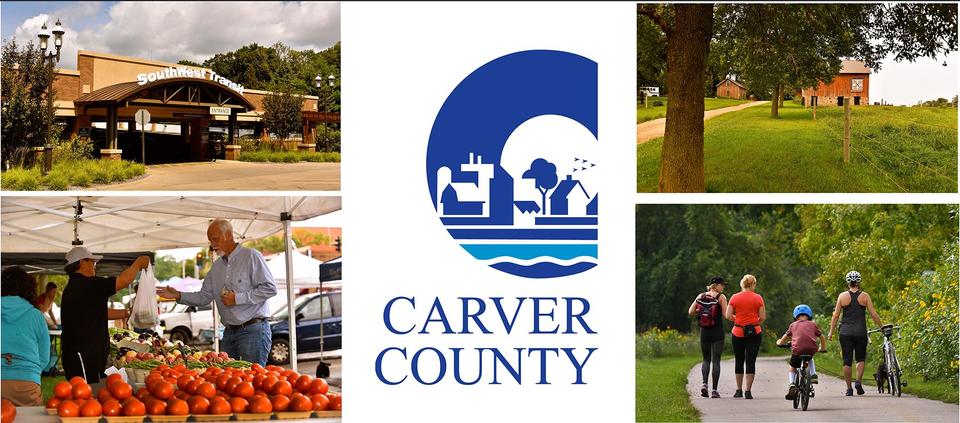During the 2015–2016 academic year, RCP and the University of Minnesota partnered with Carver County on 29 projects that included collaboration with four divisions at the County (Administrative Services, Planning and Water Management, Public Health, and Social Services) and three cities in Carver (Victoria, Watertown, and Chaska), as well as the county’s community development agency, transit authority, historical society, and school district.
This summer, RCP conducted a three-year follow-up to assess the impact of the partnership. Humphrey School of Public Affairs graduate student Ashleigh Walter and Carver County planner Adriana Atcheson interviewed all county staff who participated in the partnership to learn about the current status of projects, what outcomes and impacts they have observed as a result of the year-long collaboration with U of MN faculty and students, and what projects would benefit from additional assistance from RCP.
The following are some of the key takeaways from our interviews:
- A number of projects were highly successful and resulted in a rapid, on-the-ground change in policy or practice based on student findings and recommendations. These included projects to implement sustainable turf management practices in the City of Watertown, restore the Historic Andrew Peterson Farmstead, recruit and retain volunteer firefighters in the City of Victoria, implement safe routes to schools in the City of Chaska, expand outreach and engagement with Latinx residents, assess County continuous improvement and innovation efforts, and improve and expand the Eastern Carver County School District’s intercultural specialist program. Projects with a focused scope, a clear sense of how student work would be used, and that included concrete recommendations for moving forward were more likely to advance to implementation.
- Project leads mentioned other notable outcomes from individual projects or the overall RCP partnership, including raising awareness about an issue, providing data to support the need for more funding or staff resources, sparking new ideas for how top address a problem or challenge, informing decisions about which approach or strategy to adopt (including, in some cases, deciding notto pursue a course of action previously considered), providing baseline data for future evaluation or research, and initiating or deepening partnerships/relationships among the county and its partners.
- Relationship building is a critical factor in the success of projects. Some project leads did not feel they had a good connection with students, indicating a need for more—and more consistent—communication among collaborators. This appears more likely to have occurred if the project was identified simply because the RCP partnership created an opportunity for assistance from the University, rather than because the project was already a high priority within the County.
- Institutional knowledge and continuity is critical for projects to move forward once the RCP partnership concludes. In cases where project leads left or changed jobs within the organization, any momentum on (or sometimes even knowledge of) the project was lost. This underscores the importance of having a larger “stakeholder group” associated with each RCP project to help ensure the project remains a priority.
- In several cases, specific projects required additional research or technical assistance to move them along. This suggests there would be value in either longer-term partnerships or an opportunity for supplemental assistance on a project-by-project basis (something RCP’s new Small-Scale Partnership model offers). In some cases, interns were mentioned as the best option to continue work on projects or assist with implementation.
As a result of these conversations, a number of new project ideas also have emerged. RCP will begin meeting with Carver County, city, and school district staff in the New Year to discuss how to develop these ideas into a Small-Scale RCP Partnership. We look forward to collaborating with Carver County local government agencies, businesses, and residents in the coming year!
“On the field turf project, we were really able to take what [the students] provided in terms of recommendations, and maintenance practices and schedules, and just turnkey that and implement that. We’ve been doing that since the project was done, and we have really seen some good results.”
—Shane Fineran, City Administrator, City of Watertown
“The students were outstanding. The group that I worked with was thoroughly knowledgeable and meticulous about making [the survey] exactly how we wanted it. They were great with sharing information, explaining what they were doing, and applying what they were doing in the class directly to [my needs]. . . . I loved working with them. It was a very positive experience, which made me want to actually implement the tool.”
—Madeline Seveland, Education Coordinator, Carver County Water Management Organization
